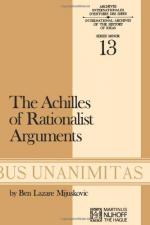|
This section contains 1,179 words (approx. 4 pages at 300 words per page) |

|
The Cambridge Platonists were a group of seventeenth-century thinkers, associated with Cambridge University, who drew on the neoplatonic tradition and contemporary philosophical developments in order to combat voluntarism, materialism, and determinism, and promote a tolerant and inclusive understanding of Christianity.
The core members of this school were active from the late 1630s through the 1680s, and were associated either with Emmanuel or Christ colleges. The central thinkers in the movement were Ralph Cudworth (1617–1688), Henry More (1614–1687), John Smith (1618–1652), and Benjamin Whichcote (1609–1683), their founding figure. Other close associates at Cambridge included Peter Sterry (1613–1672), John Worthington (1618–1680), George Rust (1626–1670), and Nathanael Culverwell (1618–1651). Beyond Cambridge, thinkers with connections to the school include John Norris (1657–1711), Joseph Glanvill (1636–1680), and Anne Conway (1631–1679). Leading latitudinarian divines, including Simon Patrick (1626–1707), John Tillotson (1630–1694), Gilbert Burnet (1643–1715), and Edward Stillingfleet (1635–1699), can also be considered disciples of the Cambridge Platonists.
Although the movement was centered in Emmanuel College, long a...
|
This section contains 1,179 words (approx. 4 pages at 300 words per page) |

|


